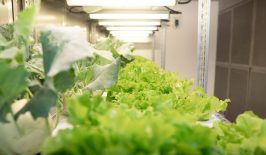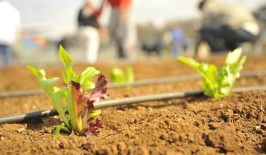The Indian government’s recent announcement to inject 4.1 billion USD into the local green vehicle industry emphasizes almost allegorically the duality of India’s rapid rise—being on the bullet train towards development yet having to balance this with sustainable living techniques in this post-global-warming world.
Let’s face it, during times when developed nations were implementing techniques to further their own growth (say during the industrial revolution), terms such as “climate change”, “global warming” and “sustainable living” were practically unheard of. Citizens of these countries were free to build, innovate, invent and move around as they pleased with little concern as to how all this new machinery and methodology might impact the environment.
That scenario is absolutely not the case today, as developing nations contend with fragile eco-systems and a precarious climate situation as they develop and globalize. Recently, this effect has been highlighted by trends in India’s automotive industry. India’s uptake of motor vehicles has jumped incredibly with more and more people in the country’s growing middle class financially able to purchase automobiles (though figures still fall behind developed nations such as the USA and Canada). Nonetheless, it goes without saying that the local trend towards automotive use is only going to increase, and in light of knowledge about the environmental impact of cars, it is imperative to implement techniques within the industry that minimize harm to the environment. A push towards green cars (vehicles which run on only electricity, electricity and another power source such as solar or wind and bio fuels) is one such measure.
The transport industry is one of the biggest contributors to air pollution, primarily through carbon dioxide emissions resulting from fuel consumption. But it’s not just emissions from vehicles that impact the environment. Moving vehicles causes road dust to become airborne, contributing to more than 30 percent of India’s air pollution.
In order to tackle the environmental impact of vehicles, we must steer focus away from emissions resulting from fuel consumption, and start to look at the entire lifespan of a car as a whole. The environmental impact begins at the manufacturing plant, where minerals are extracted and raw materials are produced. 75 percent of the materials used to produce automobiles can be recycled including steel, aluminum, copper and batteries (when handled properly). Formal recycling of auto parts has been relatively non-existent in India.
It was only recently that the government took steps to deal with end-of-life vehicles, launching the first auto-recycling center at the Global Automotive Research Centre in Chennai in late 2011. There are plans to roll out another nine by 2014.
The government’s green car funds are primarily being used to update current manufacturing techniques to facilitate the latest technology in producing electric and hybrid vehicles, setting a lofty target of having six million green vehicles (including two wheelers) on the road by 2020. The most popular electric and hybrid models emit almost half the emissions that fossil fuel-based automobiles use and while they are an alternative to gas-guzzling muscle cars, they should not necessarily be viewed as a complete solution. It goes without saying that bicycles, solar-powered rickshaws and (for more manageable distances) one’s own two feet are more eco-friendly ways to travel.
As can be seen, merely turning a blind eye to the growth in the automotive industry is not the key to combatting its impact on the environment. With all the knowledge we currently have about the environmental impact of vehicles and climate change, the automotive industry in India must proceed with caution. Government regulation minimizing this impact must not only to be implemented and monitored but also prioritized.








